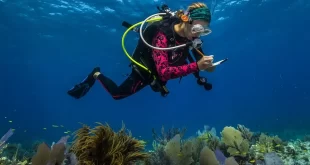Applicants submit a specific, independent research project that makes use of the Museum’s collection and resources. Accepted fellows spend the majority of their time working on their proposed project.
Many fellows will have an opportunity to assist the hosting curatorial departments with projects that complement their approved proposal. Not all departments request this assistance.
Note: There are several subcategories of fellowships included within the Fellowship in History of Art and Visual Culture. However, applicants need not specify the endowed awards they would like to be considered for, as all determinations are made by the Museum’s Grants Committee:
- Theodore Rousseau Fellowships support 12 months of travel abroad to conduct research related to paintings collections in Europe.
- Slifka Foundation Interdisciplinary Fellowships combine art historical research with training in the technical investigation of the collections. Applicants must apply to work on a specific project sponsored by the Museum (see below).
- In addition to History of Art and Visual Culture projects (12 months), one 24-month Diamonstein-Spielvogel Fellowship supports the training of candidates who seek to engage technical and scientific methods in their research on the collections in the Department of Drawings and Prints. For more details, please see Conservation Fellowship and Scientific Research Fellowship below.
The above projects do not represent the full range of eligible proposals, which may pertain to any area of The Met collection. More information, including the current Slifka Foundation Interdisciplinary Fellowship project, is in our Frequently Asked Questions.
Fellowship Period
The fellowship period is September 1 through August 31. All fellowships must take place within this period. All fellows, with the one exception of Theodore Rousseau Fellows, must be in residence at The Met for the entirety of their 12-month fellowship period.
Eligibility
Predoctoral fellowships are available to those applicants who are working on their PhD at the time that they submit their application. Senior fellowships are available to those who hold a PhD on the date of application and/or are well-established scholars.
We encourage applications from those with backgrounds in fields including, but not limited to, History of Art and Architecture, Critical Theory, Media Studies, Anthropology and Archaeology, Linguistics and Philology, English Literature, Linguistics, Religious Studies, and Musicology.
Requirements vary depending on the fellowship.
The Polaire Weissman Fund Fellowship, like the Slifka Foundation Interdisciplinary Fellowship, is open to candidates who have completed their master’s degree or are in the process of completing their PhD.
Funding
The number of fellowships awarded depends on funds and resources available. Junior fellows receive a stipend of $42,000. Senior fellows receive a stipend of $52,000. Both junior and senior fellows also receive up to an additional $6,000 for travel (maximum of six weeks).
 medjouel.com Study Non Stop
medjouel.com Study Non Stop



